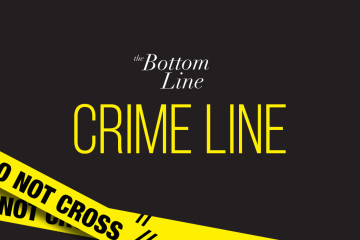Freedom of Press Threatened in Malta as Investigative Journalist Assassinated by Car Bomb
On Monday, Oct. 16, well-known Maltese investigative journalist Daphne Caruana Galizia was killed when a bomb exploded inside her car. Caruana Galizia was considered one of Malta’s premier investigative journalists, exposing corruption in the Maltese government fearlessly.
She recently revealed Maltese government content in the Panama Papers that were leaked in 2012. Caruana Galizia wrote that Malta’s Prime Minister and his wife held offshore accounts in Panama that funneled money to them from Azerbaijan. The journalist’s sons have since demanded the resignation of Malta’s Prime Minister Joseph Muscat.
The evident assassination of Daphne Caruana Galizia has brought the issue of freedom of speech and the suppression of the press to Malta. Caruana Galizia’s son Matthew wrote on Facebook, “This is what happens when the institutions of the state are incapacitated: the last person left standing is often a journalist. Which makes her the first person left dead.”
Internationally, freedom of speech is often accompanied by some restrictions balancing freedom in the name of public safety. Additionally, many countries outlaw speech against the government or the state religion as a whole.
In 2016 alone, 48 journalists were killed throughout the world with a confirmed motive for the assassination, according to the Committee to Protect Journalists. An additional 259 journalists were imprisoned across the globe.
Meanwhile, national politics in the United States have placed the freedom of speech directly in the national spotlight once again. While freedom of speech is a guaranteed right in the First Amendment, some critics of the current administration have raised the argument that the President does not fully support freedom of speech or freedom of the press.
Much of the current debate and coverage of freedom of the press can be traced back to the 2016 presidential election and President Trump’s statements regarding what he perceives as biased news corporations. President Trump frequently refutes news coverage of his administration, going as far to label several news networks, including CNN, as “fake news.”
In response to the critiques from the President and his supporting base, CNN and other networks have doubled down, asserting the truth of their reporting. In an op-ed piece published on June 29, the New York Times went as far as to claim that the President’s critiques are little more than partisan politics seeking to fight back against accurate coverage of an arguably rocky presidential term.
In a meeting with Canadian Prime Minister Justin Trudeau on Oct. 11, President Trump told reporters, “It is frankly disgusting the way the press is able to write whatever they want to write.” Supporters of President Trump cite that he was frustrated with the misleading news published by the media, as NBC published a story the President debunked as nonfactual and “totally unnecessary.” On the other hand, critics say this statement is a clear indication of President Trump’s alleged view that the press should be censored.
On the same day, Oct. 11, President Trump sent out a tweet warning a possible challenge to NBC’s Federal Communications Commission (FCC) license as a result of “all of the Fake News coming out of NBC.” Recently, the President has identified an aggressive approach concerning libel laws as a way to potentially combat the bias he sees in national media. Conversely, those critical of the administration cite these considerations as evidence of the President’s willingness to engage in censorship.
In the global political environment of 2017, journalists are playing a vital role in informing the citizens of every country about the actions of their government. Despite obstacles ranging from political pressure to outright murder, journalists continue to put their lives on the line to ensure that the truth is heard. In the eyes of the press, threats against their freedom merely hardens their determination to uncover even the most controversial stories.




